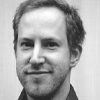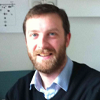Cost: Free
Book a place
Overview
This short course (6 to 8 hours) provides a gentle introduction to the R software and programming environment.
The course is free, and delivered entirely online, so you can work at your own pace at whatever time suits you.
Although the tasks focus on examples from the biosciences it's suitable for anyone who wants to learn the basics of R and computer programming in general.
Who this course is for
This short course is for anyone who wants to learn the basics of R, and computer programming in general, although the tasks focus on examples from the biosciences.
It's suitable for undergraduates, graduates and researchers from any field that uses statistical computing.
Background to R
R is an open-source software environment for statistical computing that is rapidly becoming the tool of choice for data analysis in the life sciences and elsewhere. It's developed by a large international community of scientists and programmers and is at the forefront of new developments in statistical computing.
Additionally, R is the foundation of Bioconductor, a similar open-source project focused on the development of bioinformatics analysis tools. Bioconductor rose to prominence when it became the standard environment for the analysis of microarray gene expression data, but it has maintained and extended this position with the advent of new technologies and the integration with different types of 'omics data.
Understanding R's basic functionality is of benefit to undergraduates, graduates and researchers across diverse fields.
Course content
The course is made up of five sections:
- Introduction and basics
- Variables and data types
- Inbuilt functions
- Data frames
- Plotting
Course materials are taught using pdf documents and videos, with quizzes and assignments provided to test your knowledge.
It should take you approximately 6-8 hours in total to work through the material.
This course provides a foundation for more advanced topics and techniques.
Course structure
There are six sections to the course that you should tackle sequentially.
Each section has an accompanying pdf document to work through. There are also videos to guide you through some of the materials.
The quiz or assignment at the end of each section will test what you have learned.
There's a short exercise at the end of the course where you'll manipulate a data set that comes with the R installation. This exercise is designed to be more involved than the quizzes and will require you to use the skills developed through the different parts of the course.
Pre-requisites
You don't need any prior knowledge of computer programming but some familiarity with basic mathematical and statistical concepts is assumed. These include: mean, median, variance, exponents, logarithms, summations.
Learning outcomes
On completing the course you'll understand how to:
- manipulate data within R
- perform basic data analysis procedures
- create plots
Course team

Max Reuter
Max is a Reader in Evolutionary Genetics. He joined UCL as a postdoc in 2004, then held a NERC research fellowship and was appointed to lecturer in 2009 and Reader in 2010. His research group investigates the evolutionary genetics of plastic genotypes using experimental approaches in fruitflies and yeast, bioinformatics, and modelling. Max teaches evolutionary genetics and statistics. He has played a leading role in making R an integral part of the biology curriculum at UCL.

Chris Barnes
Chris joined UCL in 2012. He is a Lecturer in the Department of Cell and Developmental Biology and initially developed the SysMIC e-learning resource for interdisciplinary training for bioscience researchers. A physicist by training, Chris was awarded a PhD in particle physics in 2005. Since then he has worked in statistical genetics and genomics at the Wellcome Trust Sanger Institute, and systems and synthetic biology at Imperial College London. He runs the Computational Systems and Synthetic Biology group at UCL.
Book a place
Course information last modified: 30 Nov 2022, 15:59
 Close
Close

